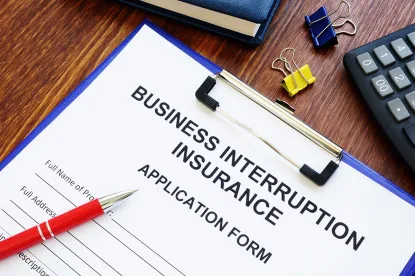Although insurers largely have continued to have success in federal court defeating COVID-19 business interruption lawsuits, one judge – Judge Stephen Bough of the United States District Court for the Western District of Missouri – continues to be pro-policyholder. As we previously reported, last year he refused to dismiss several suits brought by policyholders seeking business interruption coverage for COVID-19 related losses.
Last week, in K.C. Hopps Ltd. v. The Cincinnati Ins. Co. Inc., No. 20-cv-00437-SRB (W.D. Mo. Sept. 21, 2021), Judge Bough gave policyholders seeking COVID-19 related business interruption coverage a significant victory by denying the majority of the insurance carrier’s motion for summary judgment and sending the case to trial.
In rejecting the insurer’s motion, the Court ruled that the policyholder “has sufficient evidence by which a reasonable juror could conclude the virus was present and rendered its property unsafe.” Id. at 18. In reaching that conclusion, the court relied on the policyholder’s expert and factual evidence supporting the conclusion that COVID-19 was present on its premises. Additionally, the Court relied on the policyholder’s expert evidence that COVID-19 “can physically contaminate property causing ‘physical loss,’ but also the virus creates an actual, tangible alteration to the property.” Id. at 17. The Court also provided further help to policyholders by stating that they do not need definitive proof that COVID-19 was present on its premises, but instead they must only prove that it was more likely than not that the virus physically contaminated the premises.
The Court provided insureds with further ammunition in their quest to capture coverage when it rejected the insurer’s other arguments. For example, the Court disregarded the insurer’s argument that the policyholder did not sustain a physical loss or physical damage because the premises were used during the relevant time period. In rejecting that argument, the court held that the policyholder could recover under the policy even if it used its property in a limited capacity.
Further, the Court rejected a new argument by the insurer that the policyholder had no damages because it received more in COVID-19 relief, including PPP loans, than it claimed in damages. The Court held that because the PPP loans were intended to keep workers employed, and to pay not to compensate owners for lost income, the policyholder had demonstrated a genuine dispute regarding its lost business income.
Importantly, the Court also distinguished this case from the Eighth Circuit’s recent holding in Oral Surgeons, P.C. v. The Cincinnati Ins. Co., 2 F.4th 1141 (8th Cir. 2021) that upheld the denial of coverage under a similar policy. As the Court explained, “[u]nlike the plaintiff in Oral Surgeons, Plaintiff submits evidence supporting the inference that [COVID-19] is physical, contaminated its premise, and made Plaintiff’s property unsafe.” K.C. Hopps at 11. Thus, COVID-19 business interruption claims likely will continue to turn on the nature of the specific allegations and terms of the operative policies, and plaintiffs must plead and establish that COVID-19 was physically present on its property in order to survive motions to dismiss or for summary judgment.
The Court’s decision is particularly noteworthy because it is in contrast to many other federal courts that have dismissed COVID-19 business interruption actions at the motion to dismiss stage. Those other courts have routinely refused to accept the factual and scientific allegations in policyholders’ COVID-19 business interruption complaints as true and have granted insurer motions to dismiss on the grounds that COVID-19 cannot cause physical loss or damage. Essentially, those judges have been making their own factual determinations about whether COVID-19 was on the premises and how it impacted the usability of the property. Not only does this decision remind judges that they should not be so quick to dismiss well-pleaded allegations, but also provides a roadmap for the type of evidence that policyholders may need to present in order to assert viable claims.
Judge Bough’s ruling confirms that, although insurance companies have won many early battles, the war is not over.



 />i
/>i

